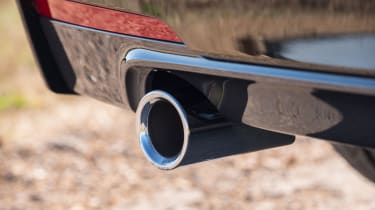BMW 3-series review - Still the best compact executive car? - MPG and running costs
The latest generation of 3-series is the most comfortable yet, but some of its sporting character has been lost
MPG and running costs
A selection of turbo only engines means that the 3-series looks very efficient on paper. BMW claim that petrol saloons (which range from the 318i to 340i) achieve between 36.7–52.3mpg and deliver emissions of 124–179g/km CO2. Tourings record equivalent figures of 40.4–49.6mpg and 133–164g/km.
The diesels are supposedly even more effcient, achieving (in saloon form, with Tourings a tad behind) between 51.4mpg to a remarkable 72.4mpg, and emitting 102-145g/km. The GT is said to return between 40.4mpg and 161g/km for the thirstiest petrol 340i GT, to 61.4mpg and 121g/km for the most parsimonious diesel, the 318d.
In the vast majority of models, the automatic versions are cleaner and more efficient, save for a few instances where they match the manual’s figures. And as you might expect, equipping xDrive has a marked adverse effect on economy, emissions and – by extension – BIK rates over comparable rear-wheel drive Threes.
All of those figures will depend heavily on your typical driving requirements, though. Using any of the performance available will see those MPG figures drop. The 3-series is still a respectably efficient car, however, just perhaps not as righteous as its official figures suggest.
If you’re really worried about fuel use the one to look out for is the plug-in hybrid 330e, with a claimed 148.7mpg and 44g/km of CO2. Like any plug-in car, they use the least fuel if you only potter around town and are able to regularly recharge. Pounding up and down the motorway burning petrol and never see a plug socket will result in an MPG figure similar to that of an ordinary 320i.
BMW Service Inclusive – covering service requirements for five years/50,000 miles – is available for a fee and the basic BMW warranty is three years/unlimited mileage. Insurance groups are 20-43.



